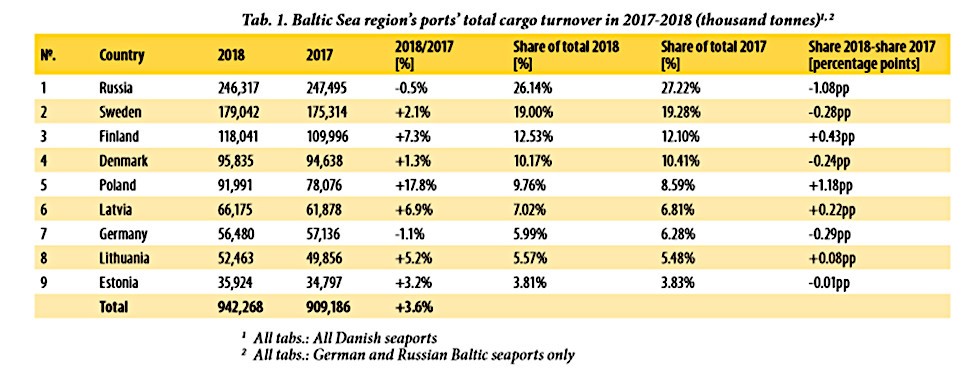Analyzing growth factors in the Baltic port market
The 3rd Baltic Ports and Shipping Conference took place this week on 22-24 October, 2019. The Baltic Ports Organization (BPO) was present during the event, showcasing port market dynamics and challenges that need to be taken into account by the Baltic ports.
Focus rested on issues related to challenges, solutions and innovations in port operations, shipping, supply chain and logistic strategies. Session topics included an economic outlook for the Baltic Sea region (BSR), digitalization’s impact on speed and efficiency of operations, improvement of collaboration between different parties involved in the supply chain and a closer look at the development of the port market.
BPO’s Secretary General, Bogdan Ołdakowski, addressed the last point by presenting an analysis of port market dynamics and possible challenges Baltic ports may have to face.
During the last couple of years the Baltic port market has experienced a period of growth. A record turnover of 942m tonnes was reached in 2018. The market grew by 15.7% between 2010 and 2018. This growth can be mainly attributed to gains made by Russian ports, followed by their counterparts in Sweden and Finland.

Source: Baltic Yearbook 2018/19 (Baltic Press, 2018)
The region also saw rapid growth in the container sector. Together, the top 10 Baltic ports handled over 8.8m TEUs in 2018, while the whole container market in the BSR exceeded 10m TEUs. This corresponds to a share of 13.5% of total container turnover in Europe (ca. 65.5m TEUs) in 2018.
The ro-ro and ferry market on the other hand, registered only moderate growth (2.3%) in the previous year. Countries leading the charge in terms of traffic include Sweden, Denmark, Germany, Finland and Estonia.
Bogdan Ołdakowski, Secretary General, BPO, commented after the event, "The Baltic port market has been growing rather fast in the last years, reaching records year by year. An outlook for coming years is moderate. The economy in Europe is slowing down and there are some global challenges, such as the US-China trade dispute or protectionism. It is to be expected that the Baltic port market will experience more uncertainty in the coming years."
The conference was co-hosted by one of BPO’s Members, the Port of Gdynia and the Port of Gdańsk. It was accompanied by a sizeable exhibition and offered the participants the opportunity of study visits to local container terminals and warehousing facilities.
![Baltic Ports Organization]](/assets/template/img/bpo/logo.png)